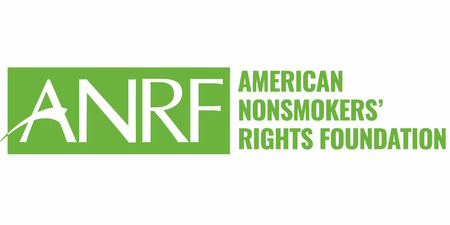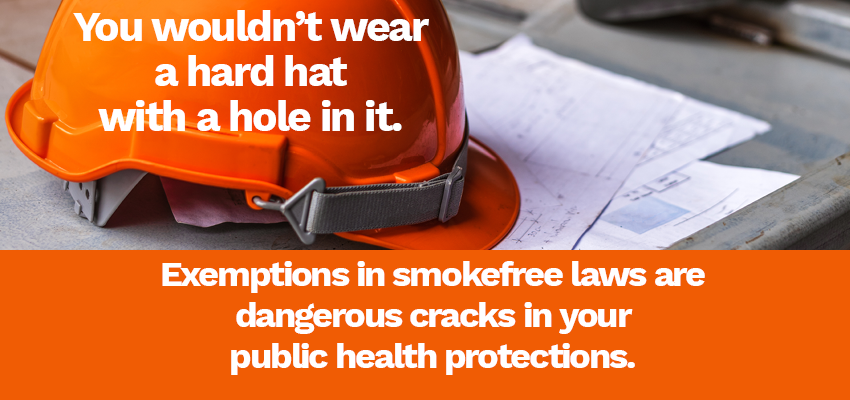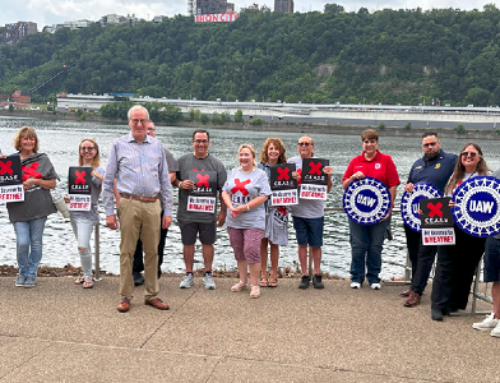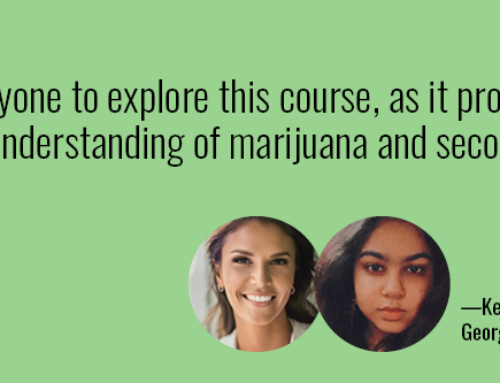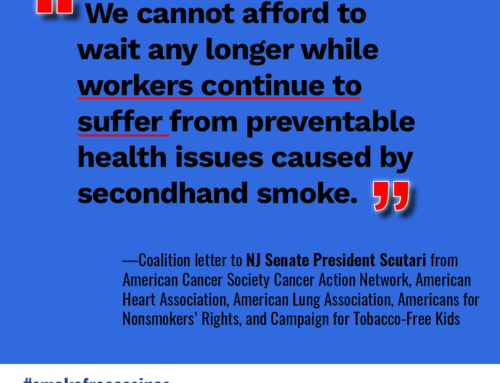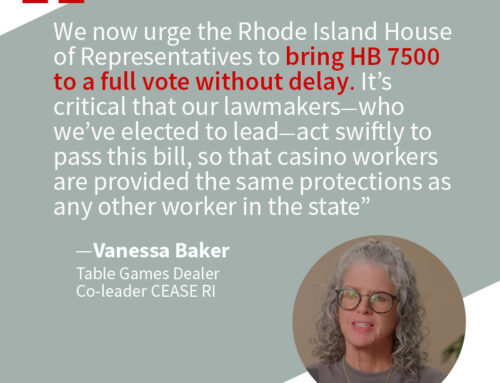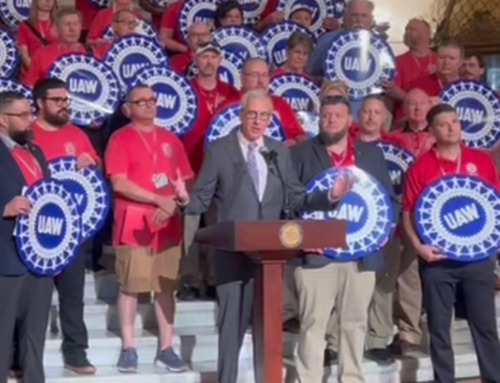The concern about marijuana interests weakening smokefree air protections is no longer theoretical; it’s now happening in practice. The emerging marijuana industry and its proponents are actively working to roll back local and state smokefree air laws to create more spaces where people are allowed to smoke and vape marijuana, which puts the health of workers and the public at risk.
These marijuana industry efforts threaten to erode longstanding, hard-won public health laws that are proven effective at protecting the health of workers and the public from secondhand smoke exposure. Marijuana retailers and industry proponents are aided by the fact that there is too little awareness among the public and local elected officials about the health risks of marijuana exposure and the fact that even though marijuana is now legal, it should not be used in ways that harm other people. The bottom line is that smoke is smoke, and smokefree spaces where people live, work, and play should be free from all types of secondhand smoke exposure.
Happening Now Locally
Threats to local smokefree protections in California are indicative of the challenges cities across the country will face from the growing lobbying influence of the commercial marijuana industry.
In San Francisco the Board of Supervisors passed a law in February allowing smoking even in marijuana shops located in multi-use buildings, meaning that secondhand smoke will impact others in the building. Also, because it is marijuana smoking, complaints of secondhand smoke will be outside the jurisdiction of tobacco control program for enforcement. The city also indicated it would waive smokefree laws to allow marijuana smoking at special events.
In Eureka, the City Council voted to allow smoking lounges at marijuana retailers, relying on the tobacco industry’s old discredited arguments of ventilation systems, falsely implying that these systems provide some sort of protection from the health hazards of secondhand smoke. ASHRAE, the standard setting body for the HVAC industry, bases its ventilation standard for acceptable indoor air quality on an environment that is completely free from secondhand tobacco smoke, secondhand marijuana smoke, and emissions from electronic smoking devices.
In Berkeley, the City Council considered ordinances in March to allow for on-site smoking in marijuana retailers, and to roll back the city’s 2007 smokefree parks law to allow smoking and vaping during marijuana special events in a city park that is also used by families. The Council decided to hold off on allowing special events in the park, but will consider on-site consumption, including smoking lounges, in the near future.
At the State Level
Colorado also continues to feel the push of the commercial marijuana industry. The Colorado House of Representatives has passed HB1230 a marijuana “hospitality” bill to broadly allow marijuana smoking and vaping in a wide range of businesses. The result will be many more people exposed to secondhand smoke in workplaces and public places.
California is also facing a statewide threat to smokefree protections as the legislature considers a bill—AB1465—that would allow marijuana smoking and vaping in licensed consumption cafes and lounges. This bill could severely undermine smokefree protections throughout the state by permitting marijuana smoking and vaping in venues that are currently required to be smokefree. Many of the regulations governing these smoking venues would be determined by the California Cannabis Bureau, so the marijuana industry could further erode protections by expanding where these smoking venues could be located.
Voice Your Concerns
We encourage tobacco control programs, public health partners, advocates, and community members to work together and speak up about keeping smokefree air laws strong, including educating your elected officials about why marijuana smoking and vaping should not be allowed in smokefree spaces. Even if you’re not talking to your local elected officials, local marijuana industry supporters may be talking to them. Make sure they hear from you too! Remember, we are not questioning the rights of individuals to use marijuana. This is about protecting everyone’s right to breathe smokefree air.
